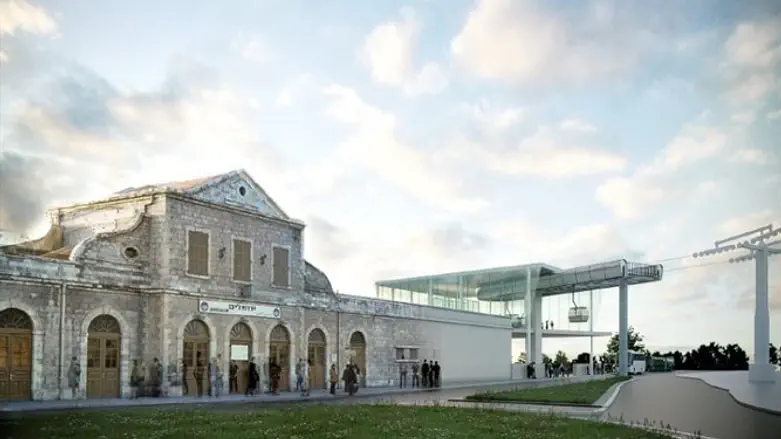
Tourism Minister Yariv Levin (Likud) sent an angry letter to the European Union (EU) representative in Israel following Arutz Sheva's exposure of the EU and New Israel Fund's attempts to fund a conference against the the creation of a cable car servicing Jerusalem's Old City.
"I was astounded to see that the European Union is involved in the conference and and supports it," Levin wrote in a letter published by Yediot Aharonot. "This is a gross and unacceptable interference in Israel's internal affairs and its sovereign decisions."
"Would any of the countries in the European Union agree to allow another country to involve itself in an issue such as this? The EU's support of the conference is nothing but clear proof of its superficiality, prejudice, and one-sided adoption of extremist stances which aim to harm not only the State of Israel's sovereignty and its citizens but even the experience provided to tourists of all religions and nationalities, who come to Jerusalem.
"The fact that in addition to the European Union, the conference is sponsored by the extreme left New Israel Fund also tells of its content and character. I expect that you will act immediately to remove the EU's support for the conference, and that the EU will cease interfering in Israel's internal affairs."
The conference is planned for this Thursday, and is organized by the Emek Shaveh organization and Palestinian Authority sources, and sponsored by the EU and New Israel Fund.
Last month, senior archaeologists from Emek Shaveh appealed to Israel's Supreme Court against the planned Western Wall cable car, claiming that the current temporary government is not qualified to approve its construction.
The cable car, approved by the Knesset's Housing Committee in November, aims to provide a solution to the problem of accessibility to the southeastern basin of the Old City (the Western Wall Plaza, the Dung Gate, the City of David). It will cater to travelers, residents and tourists.
Israel's government approved the first stage of the project in 2017, granting it a budget of NIS 15 million ($4.21 million) from the Ministry of Tourism. Later, the government approved the additional investment from the 2018-20 budget.